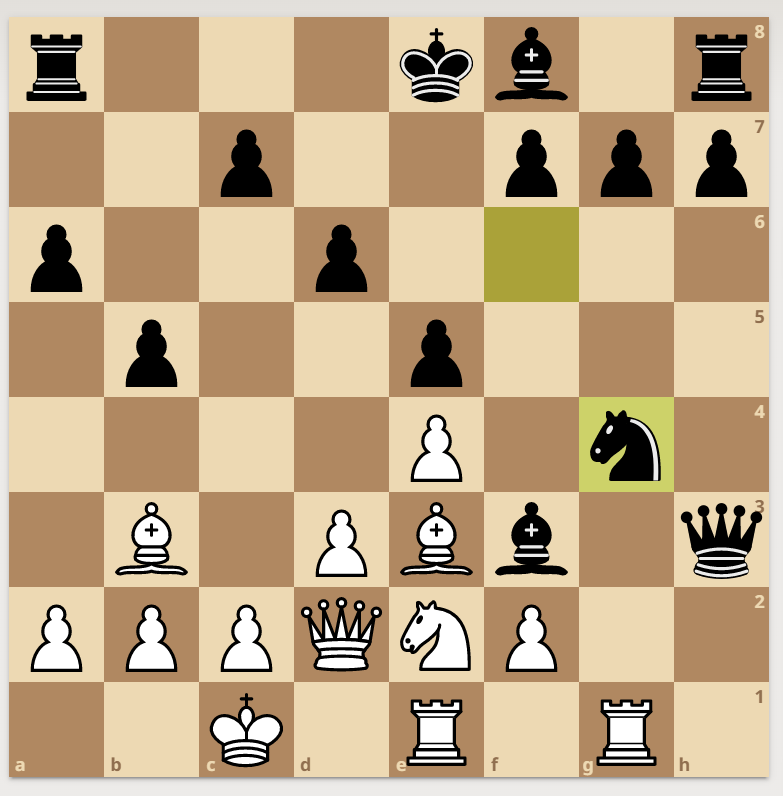The Fabled Origins of Chess
The History of Chess – Part 2:
Who invented Chess?
Last time, I told you that Chess is over 1500 years old! That’s right, not even Montgomery Burns can boast of being around when it was founded! And with that many birthday’s past, there is bound to be some ambiguity about the origins of our beloved game.
The truth is that nobody can say for certain when, where or why chess was created, but rest assured that when clarity is lacking, mankind springs up with legends to fill in the gap. The fabled origins of chess create a reason for the game. Below are my three favorite chess origin stories. Vote for your favorite at the bottom!
1. The Sage and the King

Image Public domain
Long ago, there lived a tyrannical king, named Shahram. Shahram ruled over his subjects with an iron fist and a silver tax. The king boasted to his council that only the wealthy and the strong were important in his kingdom. Therefore, the rest of the kingdom must pay to be protected.
A wise sage caring for his oppressed people designed a tactful game that represented all people of the kingdom: from the king himself to the lowly serfs (pawns). When the king played the game he was overjoyed and enjoyed the game so much that he told the sage to name his prize. But the sage spurned the king’s offer and simply asked for grain. The king was flabbergasted and asked how much grain the sage wanted. The sage replied, “One grain for the 1st square, two for the 2nd, four for the 3rd, and so on.” The king agreed immediately, but when his servants reached the 64th square and calculated the amount of grain owed, they became nervous. The servants told the king that such an amount of grain didn’t exist. The sage cleverly demonstrated to the king that even the smallest things in his kingdom play an important role.
2. Commander Han Xin

Source : Zhongguo Meishu Quanji : Huihuabian 中國美術全集‧繪畫編 (Beijing, 1984) vol.13 plate 83
A military commander from Ancient China, named Han Xin, was attempting to explain an intricate battle strategy to his warriors, but the complexities of the tactics and the abundance of maneuvers were too difficult for the soldiers to follow. Frustrated with his soldiers’ lack of understanding, Han Xin invented a war-like board game to demonstrate the plan of attack. The simplistic, two-dimensional game did the trick and Han Xin won a decisive battle. Fearful that enemy generals would utilize the game to Han Xin’s demise, he destroyed the game set and forbade any of his soldiers from speaking of the game (under penalty of death). In present-day China, “XiangQi” or the “Elephant Game” is rumored to be the direct descendant of Han Xin’s war game. However, the game bears little resemblance to the chess we play today.
3. The Persian Prince

http://history.chess.free.fr/chatrang.htm
In ancient Persia, a fierce battle took the life of a promising young prince. The prince’s body was to be taken back to the Sultan, but the council was unsure of how to tell the king of his son’s untimely death. The wisest on the council, the grand vizier, devised a game of war and offered to play with the king. The wise man cleverly ensnared the king’s pieces in an orchestrated ambush. When he announced to the king “Shah Mat” translated to “The king is helpless”, the king broke down in tears because he realized his son was dead.
Which story is true?
The truth behind the origin of chess will forever be shrouded by the cloak of time. Whether any of these legends are true, or if they all are, is unimportant! What the legends teach us is that chess has the power to instill great lessons that reach far beyond the board.
Which is your favorite chess origin fable?
Next time, we discuss the historical roots of chess and where was chess invented?











